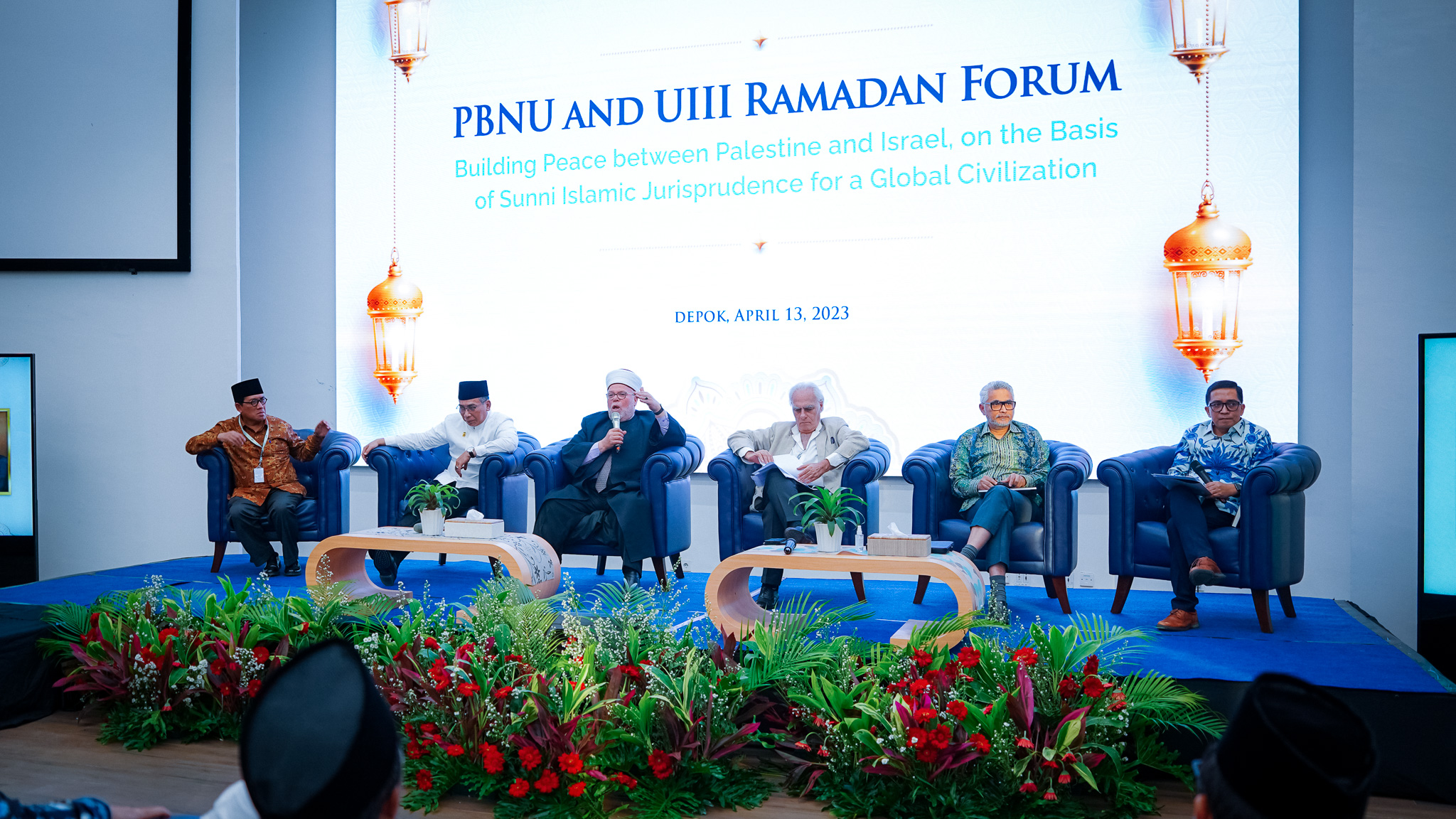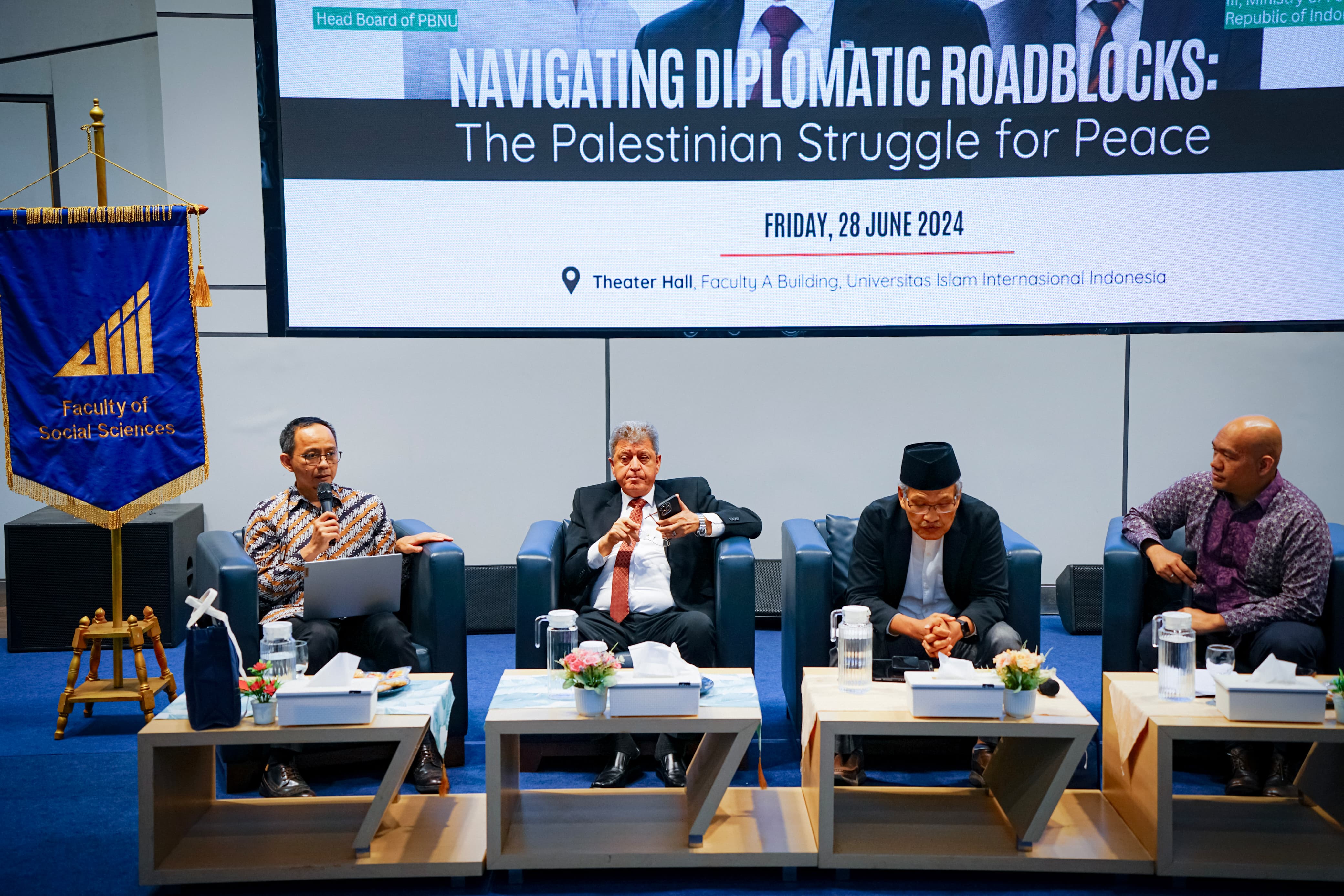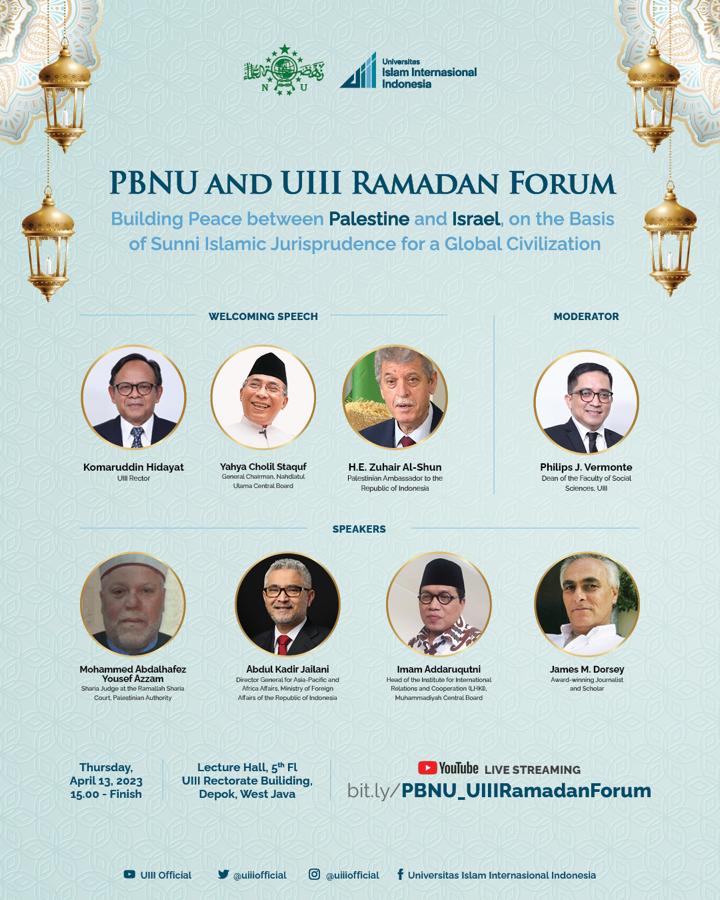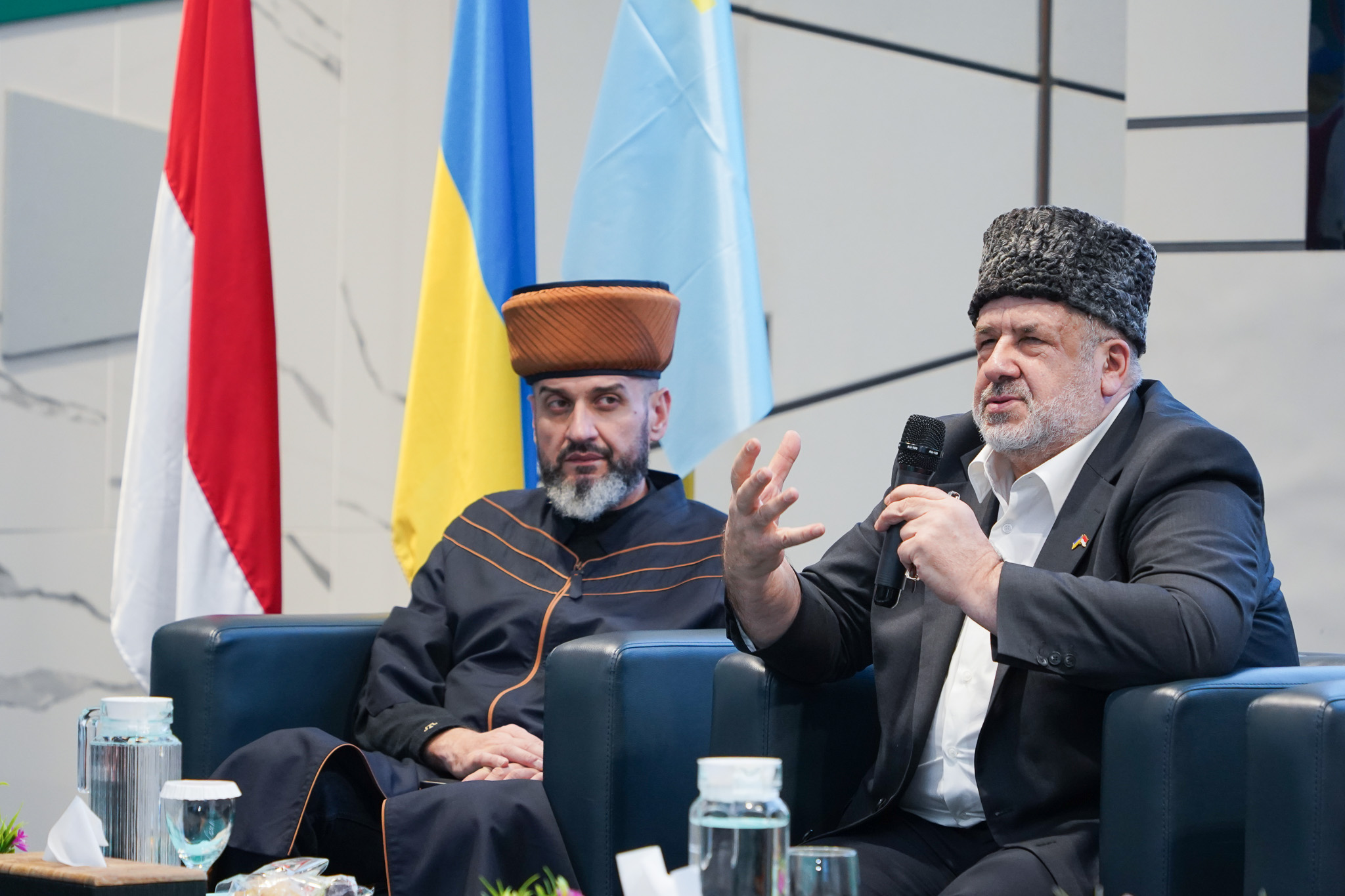UIII and PBNU Hold Forum to Build Peace for Palestine-Israel Conflict
April 15, 2023Contributors: Magello Fenis and Maroof Ahmed | Editor: Supriyono

The Universitas Islam Internasional Indonesia (UIII), in collaboration with the Executive Board of Nahdhatul Ulama (PBNU), held a forum on April 13, 2023, aimed at building peace between Palestine and Israel on the basis of Sunni jurisprudence.
Exclusively held at the Lecture Hall of the UIII Rectorate Building in Depok, West Java, the event was attended by the list of prominent figures either from local or international. The event was also streamed live via UIII’s YouTube channel.
The forum started with the singing of the Indonesia and Palestine national anthems. Afterwards, an opening remark was given by the Rector of UIII, Prof. Dr. Komaruddin Hidayat. The rector opened the forum by emphasizing that the continuing zero-sum violent conflict in Palestine was inhumane, and that we as humans were all responsible to find peaceful solutions to the problem.
In response to the rector’s speech, Palestinian Ambassador to the Republic of Indonesia, H.E. Zuhair Al-Shun appreciated the support given by the international community especially Indonesia in standing with Palestine on this matter. He also expressed the importance of this dialogue to contribute to the problem solving of the ongoing conflict.
The panel discussion was started with a speech delivered by Mohammed Abdalhafez Yousef Azzam, a Sharia Judge at the Ramallah Sharia Court, Palestinian Authority. As a Palestine native, he narrated his experience living on his land where he had witnessed the mistreatment of Palestinians by the state of Israel and the Zionist.
“We need to find a solution that addresses the root cause of the conflict and returns justice to the oppressed,” he stressed while highlighting his speech with a call for genuine peace to end the conflict.
Meanwhile, the General Chairman of Nahdlatul Ulama, K.H. Yahya Cholil Staquf explained that despite the fact that we are currently facing a fundamental and traumatic change in the history of our global civilization, it is essential to restore the belief that a solution is possible.
“As Muslims, we have a responsibility to think about how we can contribute towards resolving this issue,” K.H. Staquf said.
Concurring the statement, Head of International Relations and Cooperation of Muhammadiyah, Imam Addaruqutni, shared similar points of understanding. He elaborated the importance of interrelation between different religions such as Islam, Judaism and Christianity in solving this issue.
“We must strive to bring these religions as brothers, rather than allow them to become enemies” he said.
In the meantime, H.E. Abdul Kadir Jailani, Director General for Asia-Pacific and Africa Affairs of Republic of Indonesia appreciated the initiative of UIII and PBNU for organizing this forum. He highlighted the role of Indonesia in consistently supporting the peace process towards a two-state solution based on internationally agreed parameters.
Having said that, he concluded his speech by reminding everyone of Indonesia’s commitment and of not supporting any initiative that benefits Israel, as such initiative will only weaken the bargaining position of Palestine.
Lastly, an award-winning journalist and scholar, James Dorsey highlighted that religious reforms should not just be mere talks but must be put into action. According to him, the emergence of a halachic approach reinforced by the rise of the current government is also a reflection of the failure of Zionism.
“Pressure on Israel, particularly by the United States and Europe, may help, but ultimately, Jews will have to take the lead in tackling head-on legal, ideological, and religious issues that make Judaism part of the problem rather than part of the solution,” he added.
Throughout the forum, there was a growing consensus that recontextualization of religious teachings is necessary in order to achieve genuine peace in the region. The call for genuine peace in the Palestine, Israel and the broader Middle East is one step of a long challenging journey. Yet, it represents an important starting point for creating a better future for humanity in the region.
- Call for Papers 2025: FEB UIII Invites Researchers to Explore Muslim World Economy & Sustainability in OIC Countries
- Prof. Dr. Nasaruddin Umar: A Distinguished Profile in Religious Leadership
- Is Indonesia’s Middle Class Collapsing?
- Pedaling to Work, Dr. Lukman’s Message on ‘World Sustainable Transport Day’
- Welcoming the Pilgrim of Hope: Indonesian Muslim Leaders Embrace Pope Francis
- Sheikh Muhammad adh-Dhuwaini: A Recognized Authority in Sharia and Law
- Qurban and Grassroots Innovations Across Indonesia
- Indonesia's Green Qurban Movement
- UIII Productivity Ratio 2023
- Unsung Heroes in Global Trade: Celebrating International Customs Day 2024


